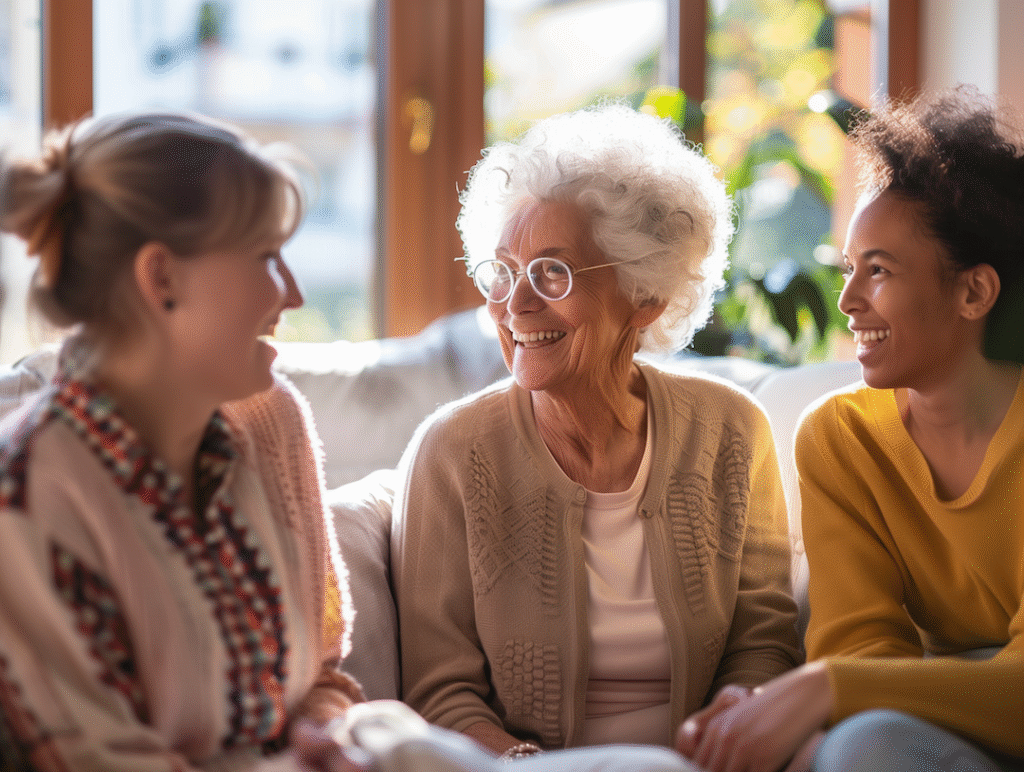As the global population continues to age, professionals in medicine, beauty, and personal care are being called to reimagine how they serve older adults. With nearly 1 in 6 people projected to be over the age of 60 by 2030, the demand for services that address the whole person — body, mind, and spirit — is rising rapidly.
Among the most promising approaches emerging today is Geriatric Aesthetics, a specialized discipline rooted in the principles of Aesthetic Health: blending professional appearance care with emotional well-being, clinical insight, and compassionate touch. This evolution of service is more than skin-deep — it affirms dignity, boosts self-worth, and enriches daily life for seniors.
The Aging Population: A New Frontier for Care
According to the World Health Organization, the number of people aged 60 and over will double to 2.1 billion by 2050. In the U.S., over 27% of adults over 60 live alone, and more than 1.3 million reside in long-term care facilities. Despite these numbers, the emotional and psychological needs of aging individuals are often overlooked in traditional medical or caregiving settings.
Age-related changes — from mobility limitations to skin fragility, hair loss, or cognitive decline — can deeply affect a person’s self-image. When grooming and personal care are neglected, mental health suffers. Depression, anxiety, and withdrawal are common, especially among seniors in institutional settings.
The Science of Touch and Appearance
Multiple studies have demonstrated that positive appearance changes, including professional grooming, skincare, and therapeutic touch, can significantly enhance self-esteem, alleviate stress, and even mitigate chronic pain. Regular grooming has been linked to improved hygiene, reduced infection risk, and enhanced social engagement.
In particular:
- Massage and scalp stimulation have been shown to lower cortisol levels.
- Facial and hand treatments improve sensory stimulation in dementia patients.
- Nail and skin care help prevent infection and create opportunities for meaningful, affirming touch.
As one nurse put it: *”Touch heals in ways medicine cannot.”
Senior Grooming and Wellness in Practice
In Georgia, several personal care homes implemented routine grooming services as part of elder care. The real-world stories from the field were striking:
“I hadn’t had my hair washed properly in weeks. When Marlene massaged my scalp and brushed it out, I just cried. I looked in the mirror and thought — there I am.”
— Lois, 84, assisted living resident
Another daughter shared:
“Mom has Alzheimer’s and rarely speaks anymore, but after her visit with the esthetician, she kept looking at her hands and smiling. She even said ‘pretty.’ We hadn’t heard that word in months.”
In facilities where grooming was prioritized, residents showed measurable improvements in mood, hygiene, and participation in activities. Families described loved ones as “coming back to life.”
The Role of Beauty and Personal Care Professionals
Beauty professionals drawn to serve seniors often possess unique qualities: empathy, patience, attentiveness, and a strong sense of purpose. Many express that this work is deeply fulfilling:
“I used to think of myself as just a hairdresser. But working in senior homes, I realize I’m restoring dignity. I’m helping them face the mirror and say, ‘I’m still here.’ That’s sacred.”
— Rosa, cosmetologist
Training in Geriatric Aesthetics equips these professionals to work safely with aging skin, understand health conditions, and apply therapeutic techniques tailored to older adults.
Bridging Medical and Beauty Worlds
Professionals in medicine and personal care must collaborate to embed Aesthetic Health into elder care. Geriatric nurses, dermatologists, hospice teams, and long-term care providers can all integrate grooming into care plans:
- Scheduled grooming visits by licensed professionals
- Hand massage and scalp stimulation as part of daily routines
- Sensitive communication and sensory-friendly products for memory care patients
“Our patients in skilled nursing can’t always recall breakfast, but they’ll smile when you brush their hair the way their mother did. That kind of memory lives in the skin.”
— Dr. J. Kim, Geriatric Psychiatrist
A Caregiver’s Toolkit: Everyday Aesthetic Health
For family caregivers, small daily rituals can make a big difference:
- Use favorite scented lotions for hand massage
- Play calming music while brushing hair
- Create “beauty days” with light facials or manicures
- Encourage grooming as a joyful, shared moment
These activities not only maintain hygiene but also foster emotional bonding and connection. They remind loved ones they are cherished.
Aesthetic Health: The Future of Senior Wellness
The concept of Aesthetic Health redefines beauty as an essential element of elder care. When seniors feel seen, valued, and confident, they are more likely to stay socially connected, mentally alert, and physically active.
“It’s not just nails. It’s feeling human again.”
— Helen, 90, memory care patient
The rise of Geriatric Aesthetics represents an exciting new path for professionals who want to blend compassion with expertise. It’s also a powerful reminder: aging beautifully is not a luxury — it’s a right.
Alison O’Neil is a long time leader in the practice of Aesthetic Health, developed the first dermatologic rehabilitation clinic in the country in her early 20’s and has served countless patients. She is the esteemed author of multiple professional articles regarding appearance, clinical esthetics, skin health treatments and it’s impact on mental health, She is the founder of the Beauty Becomes You, 501(c)(3) charitable Foundation, and a L’Oreal Paris Woman of Worth honoree. Alison is Chair of the Global Wellness Institute Aesthetic Health Initiative, and a global speaker on the impact of beauty on wellness.

